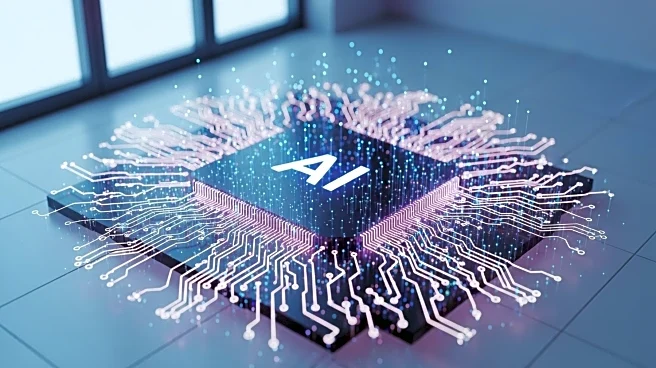What's Happening?
TechCrunch Disrupt 2025, scheduled for October 27-29 in San Francisco, will feature industry leaders discussing the impact of artificial intelligence on startups' go-to-market (GTM) strategies. The event will include a panel on the Going Public Stage, where experts like Nirav Tolia, CEO of Nextdoor, Jane Alexander, partner at CapitalG, and Vanessa Larco, co-founder of Premise, will share insights on how AI is reshaping business models and consumer behavior. The conference aims to provide founders with strategies to build sustainable companies amidst rapid technological and market changes.
Why It's Important?
The integration of AI into business strategies is crucial for startups aiming to remain competitive in the evolving market landscape. As AI continues to transform consumer behavior and market dynamics, startups must adapt their GTM strategies to leverage AI's capabilities effectively. This shift can lead to more efficient operations, better customer engagement, and increased scalability. The insights shared at TechCrunch Disrupt 2025 could help startups navigate these changes, potentially leading to significant advancements in technology adoption and business growth.
What's Next?
Attendees of TechCrunch Disrupt 2025 can expect to gain actionable insights on implementing AI-driven strategies in their businesses. The event will likely spark discussions on future trends in AI and its role in shaping the startup ecosystem. As companies adapt to these changes, there may be increased collaboration between tech leaders and startups to foster innovation and address challenges posed by AI integration. The conference could also influence investment decisions and strategic planning in the tech industry.
Beyond the Headlines
The ethical implications of AI in business strategies will be a critical consideration for startups. As AI becomes more integrated into decision-making processes, companies must address concerns related to data privacy, algorithmic bias, and transparency. These issues could lead to regulatory changes and require startups to adopt responsible AI practices. The long-term impact of AI on employment and skill requirements in the tech industry may also be a topic of interest, prompting discussions on workforce development and education.










